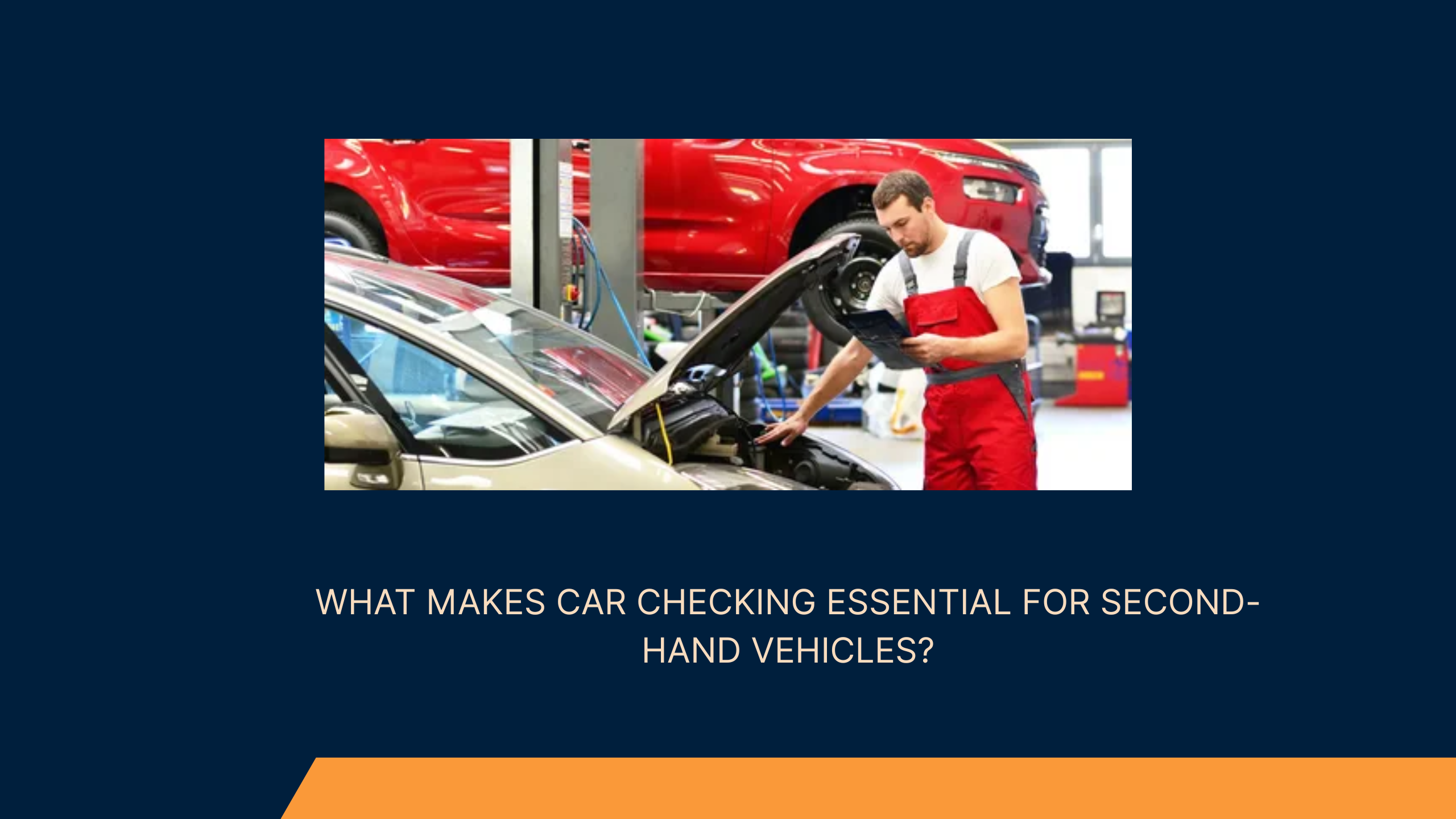Buying a second-hand vehicle can be an exciting experience, but it also comes with its share of risks. Unlike new cars, pre-owned vehicles may have hidden issues that are not immediately visible. From mechanical problems to structural damages, these issues can lead to costly repairs, safety hazards, and reduced resale value. This is why car checking has become an essential step in the process of purchasing second-hand vehicles.
NOTE :- Vehicle buyers had relied on car checking in Dubai to ensure safety and verify mechanical conditions before purchasing second-hand cars. Many had avoided hidden faults and costly repairs. Check Any Car had provided professional inspections and detailed reports. Contact them today for trusted, comprehensive car evaluations.
A thorough car check ensures that buyers make informed decisions, avoid unexpected expenses, and drive with confidence. Understanding why car checking is critical can help buyers safeguard their investments.
Ensuring Mechanical and Engine Reliability
One of the primary reasons car checking is essential for second-hand vehicles is to verify the mechanical health of the car. Experienced mechanics inspect key components such as the engine, transmission, brakes, suspension, and steering systems. Detecting worn-out parts or potential failures helps prevent breakdowns shortly after purchase.
Mechanical reliability also affects performance and fuel efficiency. A vehicle that has been properly checked is likely to deliver better mileage and operate smoothly, ensuring that buyers get value for their money.
Detecting Hidden Damages and Accident History
Second-hand vehicles may have undergone accidents or repairs that are not apparent to an untrained eye. Car checking involves assessing the vehicle for structural damage, frame issues, and signs of improper repairs. Inspectors also look for mismatched paint, rust, or parts replaced with substandard materials.
By identifying hidden damages, buyers can make informed decisions about the car’s condition and potential future repairs. This step is crucial to avoid purchasing a vehicle that may compromise safety or require expensive restoration.
Verifying Vehicle Documentation and Authenticity
A professional car check also includes verifying the vehicle’s documentation. Inspectors ensure that the car’s registration, insurance, and service records are authentic. They may also check the vehicle identification number (VIN) to confirm that the car has a clean legal history and has not been stolen or tampered with.
This verification helps prevent legal issues and gives buyers confidence that the vehicle is genuine and compliant with regulations. It also protects them from fraud, which is common in the used car market.
Enhancing Safety and Driving Confidence
Safety is a top priority when purchasing any vehicle. Car checking assesses critical safety features, including airbags, brakes, lights, tires, and seat belts. Ensuring these systems function properly reduces the risk of accidents and ensures the vehicle meets safety standards.
A vehicle that has undergone thorough checking allows buyers to drive with peace of mind. Knowing that the car is safe and reliable reduces stress and increases overall satisfaction with the purchase.
Saving Money on Future Repairs
Investing in a professional car check can save buyers significant money in the long run. Identifying potential issues early allows buyers to negotiate repairs with the seller or adjust the purchase price accordingly.
Without a proper inspection, hidden faults may only become apparent after purchase, resulting in costly repairs. Car checking helps prevent unexpected expenses and ensures that buyers invest in a vehicle that provides long-term reliability.
Supporting Negotiation and Fair Pricing
A detailed car inspection report serves as documented evidence of the vehicle’s condition. Buyers can use this report during price negotiations to justify a lower offer if repairs or replacements are needed.
This ensures a fair deal and prevents overpayment for a vehicle with hidden problems. Additionally, sellers who are transparent about the vehicle’s condition are more likely to provide reasonable pricing, creating a smoother transaction for both parties.
Conclusion
Car checking is an essential step when purchasing second-hand vehicles. It ensures mechanical reliability, detects hidden damages, verifies documentation, enhances safety, and saves money on future repairs. Beyond these practical benefits, a professional inspection builds buyer confidence and supports fair pricing during the purchase process.
By prioritizing car checking, buyers protect their investment, avoid unexpected expenses, and ensure that their second-hand vehicle remains safe, reliable, and efficient for years to come. In today’s competitive used car market, skipping this crucial step can lead to costly mistakes and unnecessary stress, making professional car checking an indispensable part of any purchase.
For More Insightful Articles Related To This Topic, Feel Free To Visit: Wowtobechic

